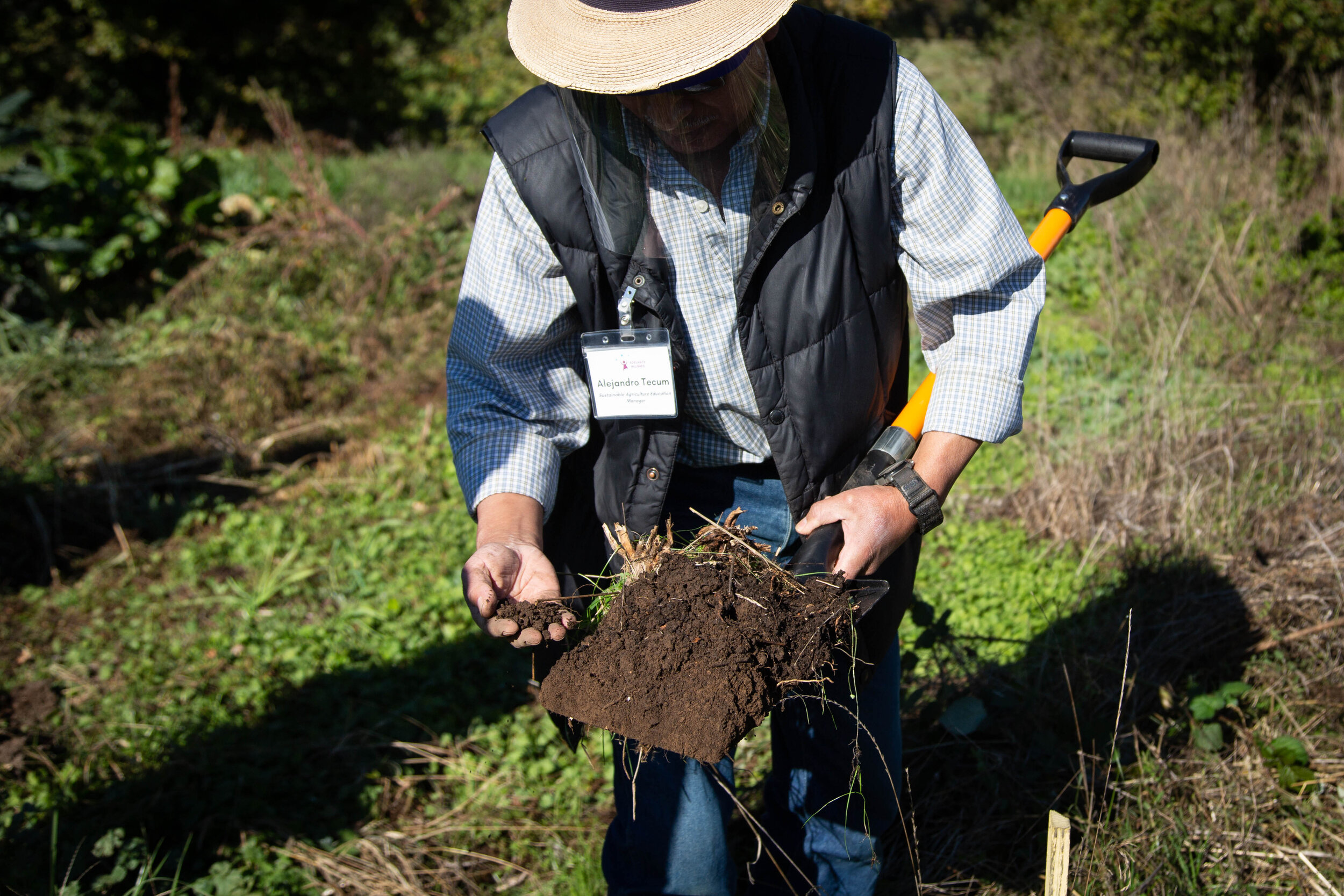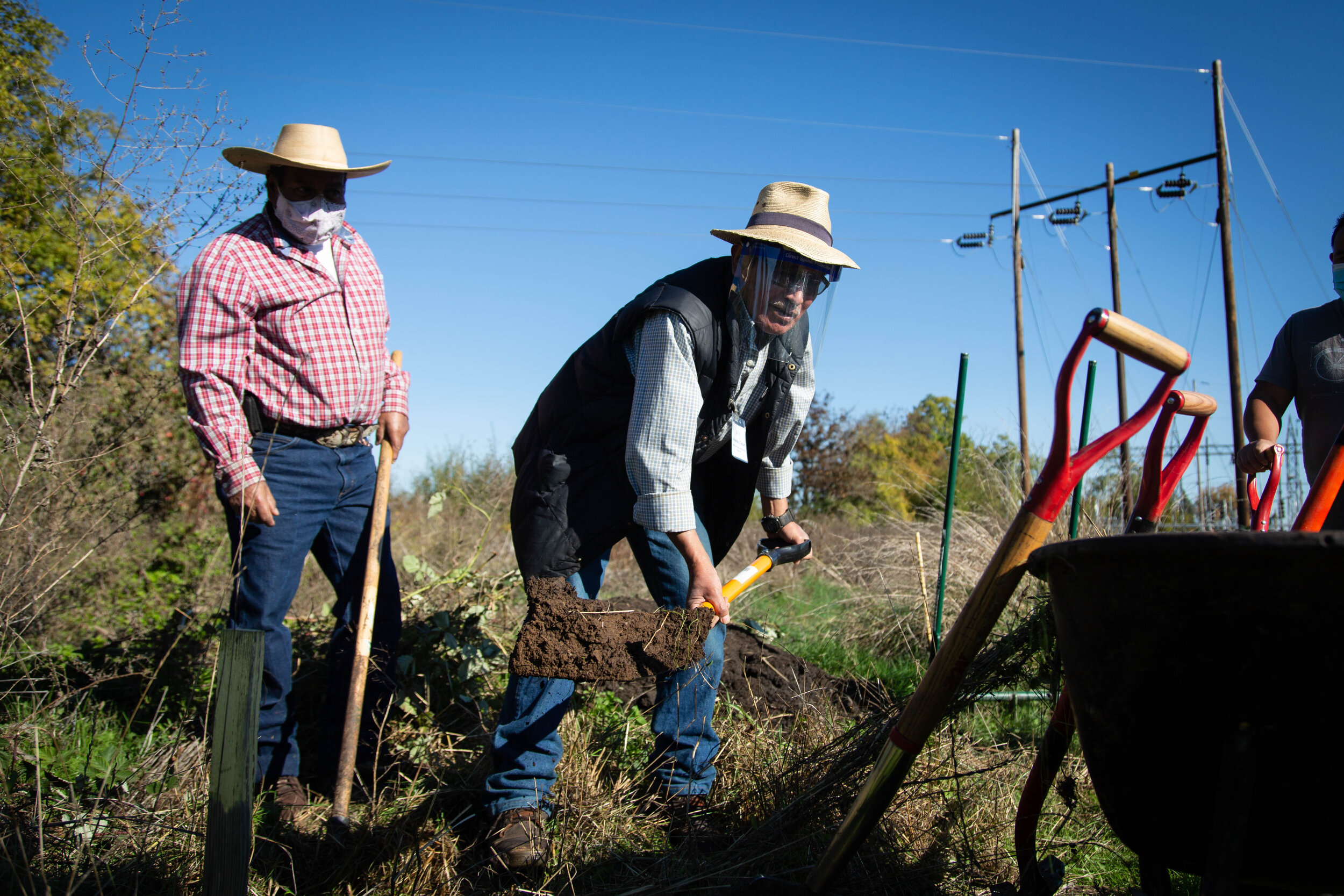For Joaquin, regenerative farming techniques are changing everything he thought he knew about agriculture
The Adelante Mujeres Regenerative Agriculture class meets at a community garden.
It's a sunny day in November, and Alejandro Tecum and his students are masked up at a community garden. Together, they work the soil, preparing it for winter.
Adelante Mujeres's Regenerative Agriculture course gives participants the training and skills necessary to grow produce using regenerative methods, and to successfully market their products. With these farming methods, Latinx farmers can learn to not only sustain our planet, but regenerate it.
Alejandro discusses soil and how to prepare a garden for winter.
Joaquin is one of Alejandro's students. "I come from a place where they were destroying the soil," says Joaquin. He's from Jalisco, Mexico, where they use the traditional cultivation method of plowing and fertilizing the land with chemical fertilizers.
"So, I met Alejandro through a friend, and I wanted to experiment with Alejandro’s method. He told me that they didn’t use harmful chemicals to fertilize the earth and didn’t need to plow the land. So, I wanted to experience and watch how he did it. From the first class, he convinced me not to turn the soil, and to not use chemical fertilizers that damage the earth."
Joaquin works his plot in a community garden.
In addition to helping the planet heal, it's also about saving money, says Joaquin, since you don't have to buy chemical fertilizers. "You even save a lot of water and money with his method, because in traditional farming, we waste a lot of water."
Joaquin explains that there is so much abandoned land in Mexico that he was able to secure a bit of it to lease for farming. "I originally experimented with traditional cultivation and it went very poorly for me." He manages it remotely from Oregon, and has now started using his new regenerative techniques. Now, he says, it's producing much better yields.
Joaquin says he sees a good future in sowing and growing food in healthy soil because it's something we all need. He wants to spread his seeds of knowledge to other farmers as well.
"My goal is to bring this to my people,” says Joaquin. “Bring this agricultural system to my people, so that farmers can come to see other alternatives, and also take care of nature. I want them to watch me to see how I farm and to obtain good results without spending a lot of money. In Mexican agriculture, there are some men that are very used to traditional cultivation, and it’s very difficult to convince them not to turn the soil and not use chemical fertilizers."
Alejandro Tecum leads a Regenerative Agriculture class
Joaquin's other goal is to no longer work in factories. He wants to live off of the field, growing his own food.
As our planet continues to be ravaged by the climate crisis, there remains hope through regenerative agriculture methods. One class at a time, Alejandro and his students are changing the way we grow food. They are healing the planet, one small farm at a time.






